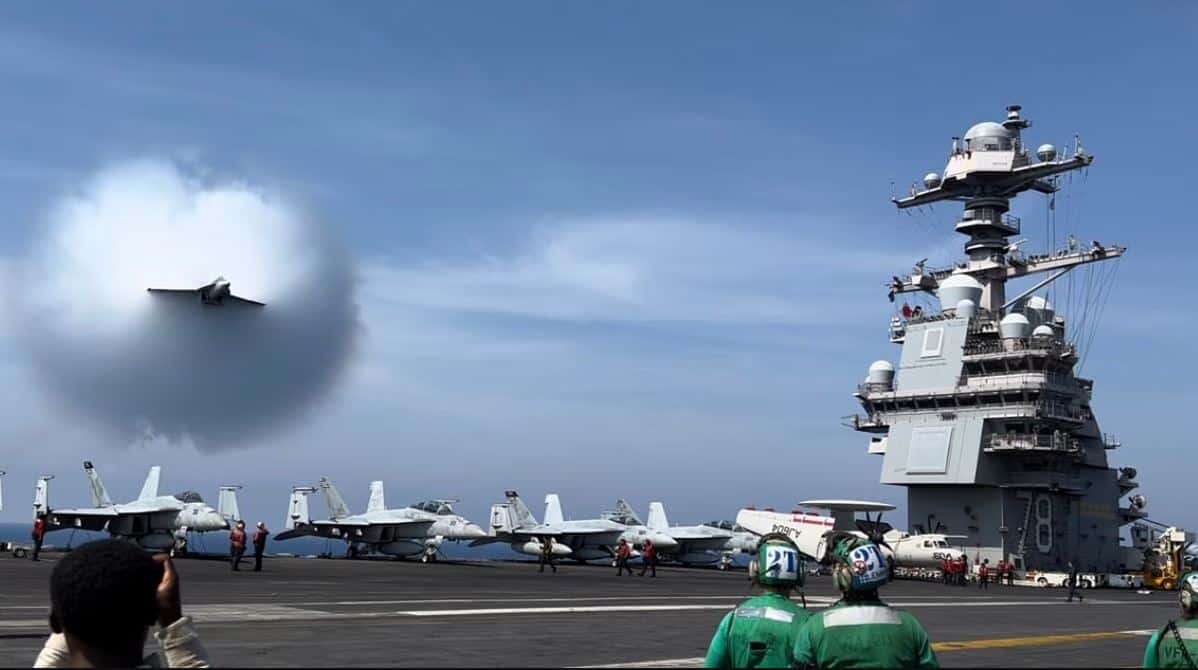
Last Saturday, the world looked on as the Al-Qassam Brigades, the military wing of the Hamas movement, launched Operation Al-Asqa Flood, the largest military incursion into the state of Israel since the 1973 October War, the 50th anniversary of which had occurred just one day beforehand.
Though lauded by many as a legitimate military response to the Israeli occupation, many could also not help but wonder at how Israel, an entity possessing state of the art surveillance equipment and which receives annual funding from the United States to the tune of billions of dollars, could seemingly be ‘taken by surprise’ by militant Palestinian groups to such a devastating extent.
Suspicions were further aroused when it emerged that Universal Paralello, the electronic music event held on the border of Gaza and which has been the focus of global media attention following the Palestinian incursion, had only changed its location two days beforehand following the falling through of a site in southern Israel near the Egyptian border. The idea that there were no serious insurance or security concerns over the holding of a music festival on the border of a location where violent clashes between the Al-Quds Brigades and Israeli Forces had taken place only last Summer, is simply unfathomable.
Less than 48 hours following the commencement of Operation Al-Asqa Flood, the Associated Press also carried a report citing an unnamed Egyptian intelligence official who had claimed that Cairo had repeatedly warned Tel Aviv that an escalation was imminent, warnings that seemingly went unheeded. Two separate reports on Friday, one from the New York Times and one from CNN, both outlining warnings given by US intelligence officials to Israel in the days prior to the attacks that Hamas was preparing a large-scale operation, appear to corroborate the idea that Israel had foreknowledge of what was about to take place.
The first question that comes to mind, is to what benefit it would it be to the Israelis to allow such a devastating attack to occur?
Saving the political career of Benjamin Netanyahu, currently mired in a corruption scandal, would be a theory that appears to not have any grounding, with opinion polls following Al-Asqa Flood appearing to indicate that the exact opposite will occur.
Using the Al-Asqa operation as a pretext to carry out ethnic cleansing of Gaza appears to have strong evidence to back it up, with Israeli Defence Minister Yoav Gallant announcing a complete siege of Gaza following the attacks, cutting off food, water and electricity supplies to the besieged strip, and describing enemy combatants as ‘human animals’; language and behaviour that couldn’t be described as anything less than genocidal.
Indeed, such a scenario was envisaged by hardline Israeli Minister Orit Strock in March of this year, a move that Strock herself admitted would ‘involve many casualties’.
Another theory put forward is that Al-Asqa Flood and the ensuing Israeli onslaught on Gaza will ultimately be used as the catalyst for a wider war with Israel’s arch-rival Iran, a long-time opponent of the Zionist state since the 1979 Islamic Revolution saw Ayatollah Khomeini come to power.
Indeed, in a move which drew little attention amongst the media coverage of the current hostilities, Israeli airstrikes were launched against Damascus and Aleppo airports on Thursday; Syria being a key regional ally of Iran, with Tehran and Hezbollah coming to the Arab Republic’s aid in countering the US-led regime change operation launched against it more than a decade ago, in which Israel itself played a key role.
Despite the extensive military capabilities of the Zionist state however, Israel would undoubtedly face a challenging situation in a direct military confrontation with Iran, Syria, and Hezbollah. With a distance of more than 1,000km between Israel and Iran, launching air strikes against the Islamic Republic, and having to travel through the hostile skies of Syria and Iraq to do so, would prove next to impossible without the assistance of the United States and its allies, which leads to a grim possibility – a deliberately provoked or staged attack on American forces, intended to galvanise US support for entry into what could quickly become a global conflict.
Indeed, a historical precedent exists for such a scenario.
Following the outbreak of the second world war in 1939, France was overwhelmed by Germany in the space of nine months, leaving Britain isolated and in a perilous situation. In the United States however, no popular support for entry into what was widely seen as a European civil war existed, especially coming only two decades after WWI.
This would change radically however on the 7th of December 1941, when Imperial Japanese Forces, in response to a trade embargo imposed by the United States, launched a devastating attack on the US Naval base in Pearl Harbour, Hawaii. Washington would officially declare its entry into the conflict the following day.
Strong evidence would later emerge that, similar to last Saturday’s ‘surprise’ attacks on the Israeli state, both British and US intelligence officials at the time were aware that an attack on the US Pacific Fleet was imminent.
Now, with the provocative deployment of US and British Naval Destroyers to the Mediterranean amidst the current hostilities, the recent build-up of US Forces in the Persian Gulf, and Israel’s history of involvement in false flag operations intended to incite a US military response, from the USS Liberty to 9/11, it appears that the stage is now being set for a deliberately provoked or staged attack on US Forces in the region in order to draw Washington into a wider conflict with Iran, and the catastrophic consequences that will follow.

